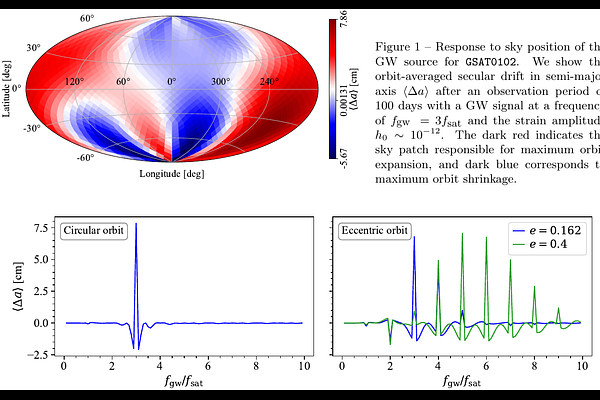Probing gravitational waves using GNSS constellations

Probing gravitational waves using GNSS constellations
Soumen Roy, Bruno Bertrand, Justin Janquart
AbstractThe detection of gravitational waves opened up a new window to look into the Universe by probing phenomena invisible through electromagnetic observations. As gravitational waves interact very weakly with matter, their detection is challenging and expensive. So far, they have been observed in the nHz frequency and audible ranges. Future detectors are expected to cover the mHz frequency, leaving the $\mu$Hz regime largely unexplored. With on-board atomic clocks and orbits determined to the cm, Global Navigation Satellite System constellations (GNSS), like GPS or Galileo, offer free access to more than 30 years of clock and orbit data for tests of general relativity. We develop a framework for calculating the deviation in the evolution of GNSS orbits induced by gravitational wave signals. We show that when a gravitational wave interacts in resonance with a satellite's orbit, effects amplify, which can be used to bridge the gap in the $\mu$Hz regime. Finally, we demonstrate that the orbital deviations induced by gravitational waves are coherent across the entire constellation, enabling a satellite network to disentangle GW effects from satellite systematics.